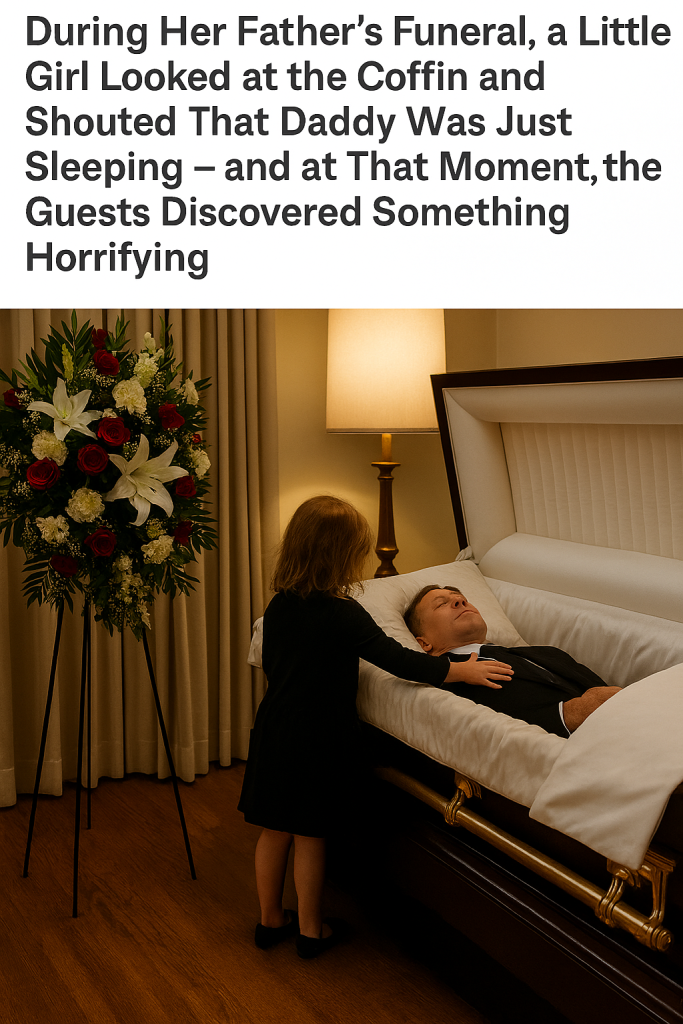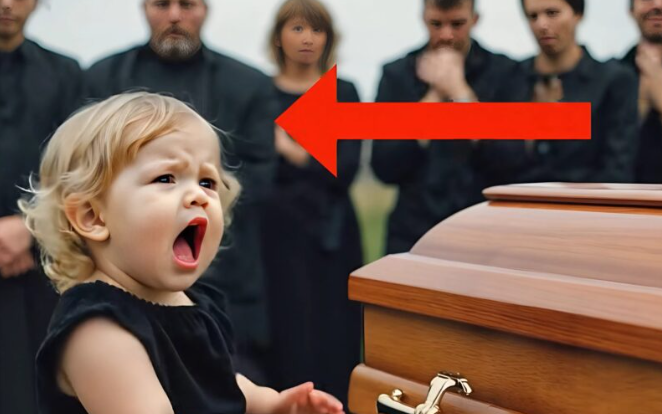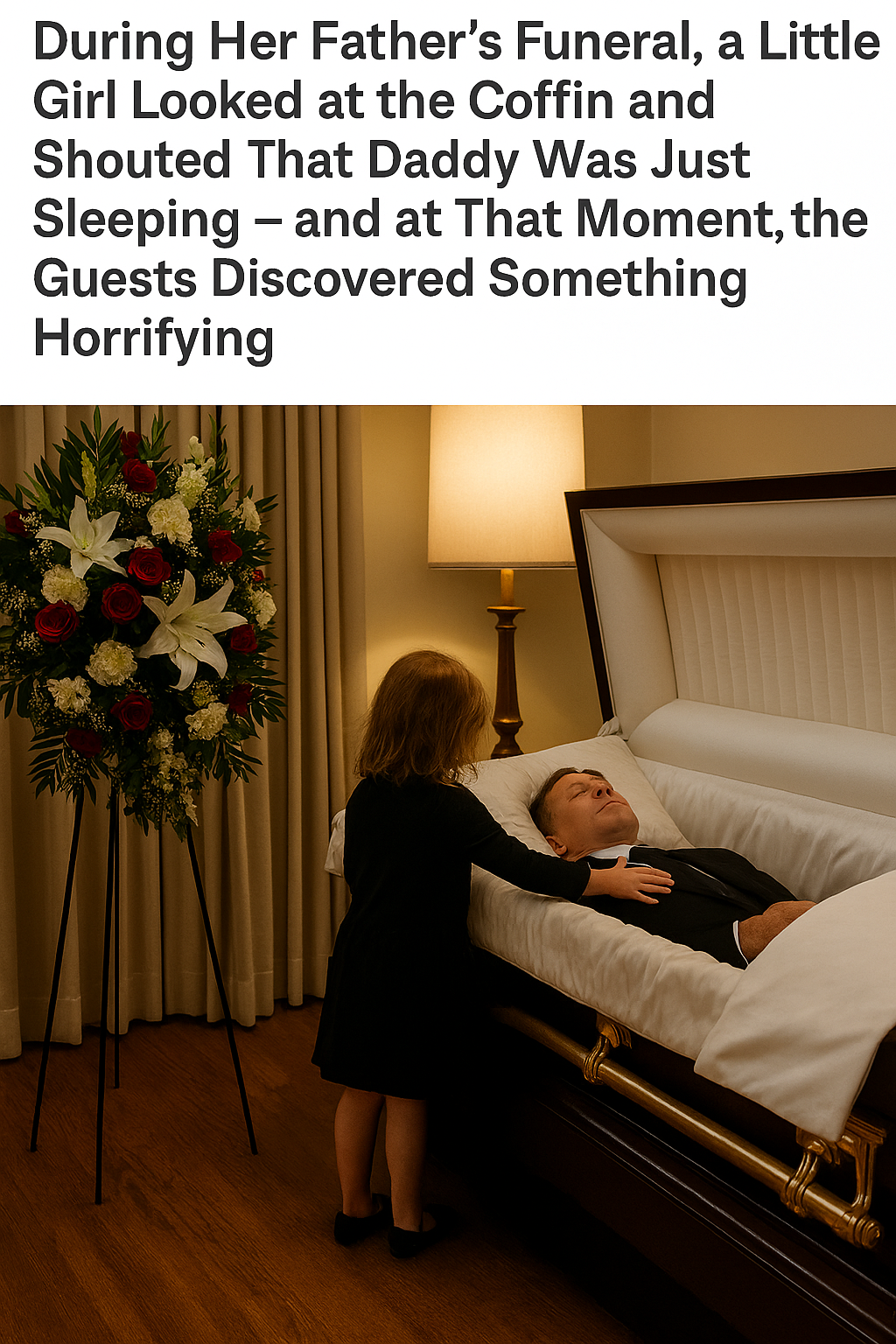
It was supposed to be a quiet, respectful farewell. Family and friends gathered in a modest funeral home to say goodbye to Michael Reeves, a 38-year-old father of two who had tragically passed away just days earlier from what doctors called a sudden cardiac event. The room was filled with sorrow, soft organ music, and the scent of lilies. But no one could have predicted what would unfold next.
Among the mourners was Michael’s youngest daughter, 5-year-old Emily. Dressed in a black dress with a white bow in her hair, she clung to her mother’s hand — until the moment she broke free and approached the casket on her own.
What she said next sent a chill down every spine in the room.
“Daddy’s just sleeping,” Emily whispered at first, her voice small but certain. Then, louder, she shouted, “Daddy, wake up! You said you’d never leave me!”
All eyes turned toward the front. Some smiled through tears, touched by the innocence of a child who didn’t understand the permanence of death. But then — something changed.
Emily tugged on her father’s hand.
And it moved.
Gasps filled the room. A few people screamed. The funeral director rushed to the casket, assuming the child had shifted something. But as he leaned closer, he turned pale.
Michael’s fingers twitched. His lips moved.
He was alive.
The entire room erupted in chaos. Phones were pulled out, emergency services were called, and several guests had to be escorted out as they broke down in disbelief. Paramedics arrived within minutes and confirmed what no one could believe — Michael Reeves had a pulse.
He was rushed to the hospital, where doctors determined he had been in a state of deep coma with an extremely low heart rate, mistakenly declared dead by initial responders. A rare condition, but not unheard of.

Emily’s innocent words and refusal to believe her daddy was gone likely saved his life.
As of today, Michael is in stable condition and expected to recover — and his story is making waves across the country. But one question still lingers in the minds of those who were there:
What if that little girl hadn’t spoken up?

